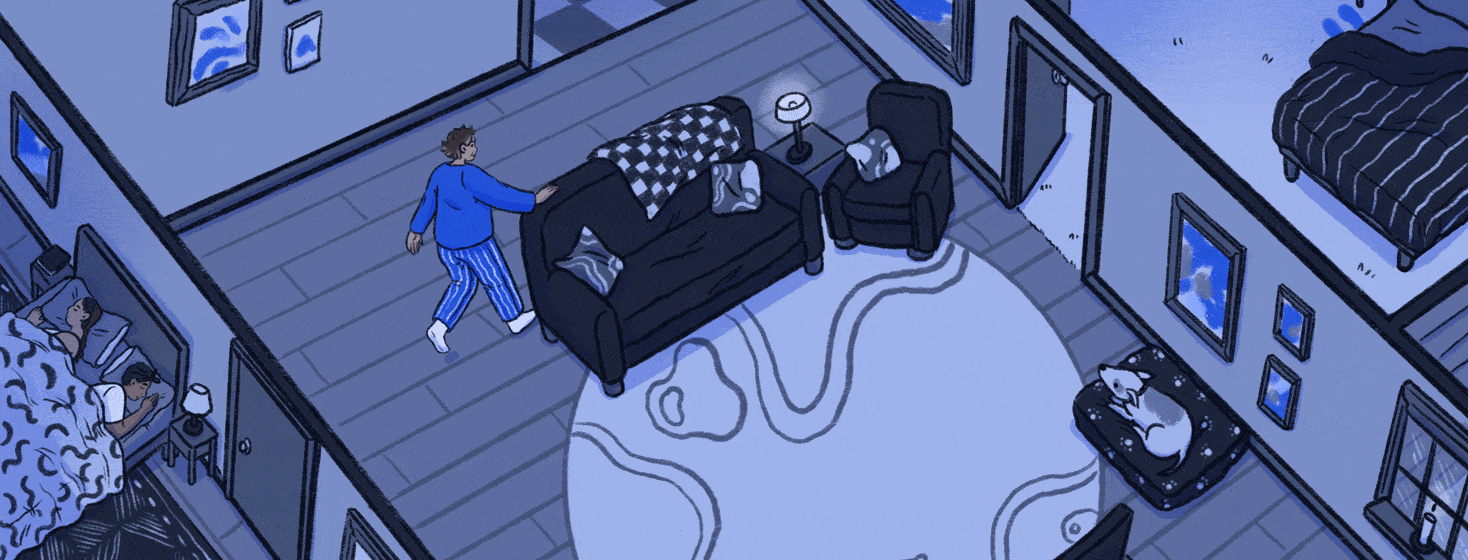The Things I Do for the Love of Sleep
"Shh. Be vewy vewy quiet..." I'm trying not to wake a wanderer. Real talk? Caring for someone with Alzheimer's is very interesting and it can be quite challenging at times. Has anyone out there ever had a perfect plan for how the evening will end only to have it completely unravel?
My mom was in the middle stages of Alzheimer's, and we were enjoying dinner. Everything went according to plan until she started talking about going home after dessert even though she lived with me! I remember it just as if it were like yesterday.
A nighttime routine
I had put in a lot of work to create a nighttime routine for my mom. You see, her sleep pattern had changed with this disease, and she was restless, hence her talk about going home.
Why was she restless, you ask? Well, to be honest, it could have been a combination of a few things such as sundowning, being scared, or just having too much energy.
Unbeknownst to me at the time, any of these reasonings would all lead to wandering.
What is wandering?
Wandering is a symptom that occurs around the middle stages of Alzheimer's and can be very distressing.
I'm not going to lie. Having a loved one with dementia living in the house can be tough. There is always that worry in the back of your mind about what could happen when you aren't watching. Sure, I have locks on all the doors and windows so nobody can get out, but it's more than just locking things uptight for me.
I sleep well at night by making sure that everything around my mom is safe and sound - from keeping floors clean and clear to preventing any potential hazards like hot surfaces or sharp objects.
My home has become a place where mom feels comfortable sleeping and resting - and so do I.
Why does wandering occur?
Wandering is a serious condition, and I want to make sure you know what to do if this happens.
Suppose your loved one has been diagnosed with dementia. In that case, they may be experiencing wandering as their mind struggles with the confusion of memory loss or they feel unfulfilled because they are unable to complete tasks that used to occupy them for hours on end.
However, from my experience, there can be other reasons why someone who has dementia might wander - so pay attention and keep an eye out that your loved one could be:
- Bored and under-stimulated at home;
- Uncomfortable and confused by something in their environment; or
- Hungry or in need of relief from another discomfort like constipation.
How to prevent wandering
Preventing wandering may be different for each wanderer but what I think is essential to practice is keeping your loved one active and then ensuring your home is safe.
These may seem like a lot but trust me when I say that securing the premises makes all the difference in how well I sleep at night. With our home set up as a safe environment for my mom and a peaceful respite for me, I don't worry so much if and when my mom wakes up.
If you have any suggestions on how we can make it even safer, please share them in the comments below, or share any tech you have utilized with the community. What kind of setup do you use to keep your loved one from wandering off at night?

Join the conversation